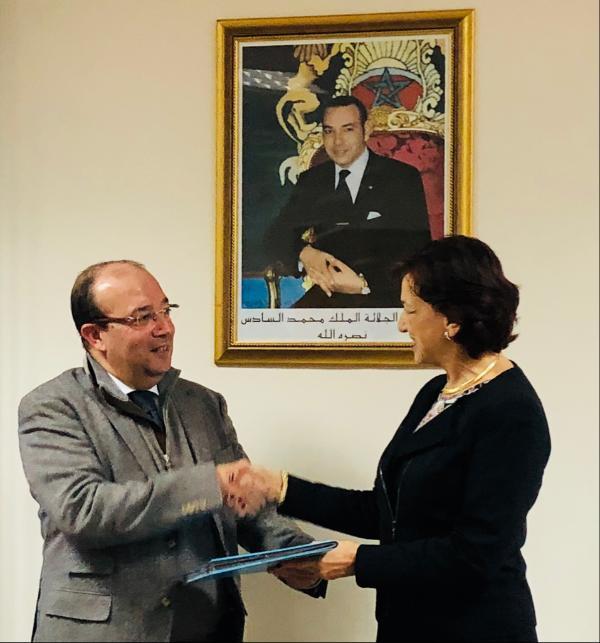
- In total, 12 new stations will be created over a distance of 7 km
- Annual CO2 emissions are expected to be reduced by around 4 500 tonnes thanks to a better balance between public and private transport
Société du Tramway de Rabat Salé (STRS) and the European Investment Bank (EIB) today announced the signature of a EUR 40m loan agreement for financing the extension of Rabat Salé’s second tramway line. The loan agreement, secured by the Moroccan Government, was signed by Ms Flavia Palanza, the EIB’s Director of Operations in Neighbouring Countries, and Mr Saïd Zarrou, CEO of STRS and Managing Director of the Bouregreg Valley Development Agency (Agence d’Aménagement de la Vallée du Bouregreg).
This loan concerns the extension of Line 2 of the Rabat Salé tramway network by around 7 km, including 12 new stops, four in Rabat and eight in Salé. The project also involves co-financing the acquisition of the rolling stock required for the future operation of the network, i.e. 11 two-section tram units.
This tramway network extension project forms part of the Transport and Traffic Master Plan for the Rabat-Salé-Témara conurbation, promoting sustainable, green, efficient urban mobility for the benefit of the metropolitan area's inhabitants.
By increasing the attractiveness of Line 2 of the tramway, the project is expected to increase total passenger numbers on the line by some 35% and cut road traffic by around 10 000 cars a day. This modal shift is expected to generate annual CO2 emission savings of around 4 500 tonnes, helping to make the city of Rabat-Salé less of a greenhouse gas producer, in line with the Kingdom of Morocco's commitments under the Paris Climate Agreement.
The project’s integration at the heart of the conurbation will also improve the urban environment, limiting pollution and offering a high level of service to users.
Rabat Salé’s current two-line tramway network runs for a total of 20 km and has 31 stations. Since its launch, this priority network has carried a total of 197 million passengers and is used daily by 110 000 people.

